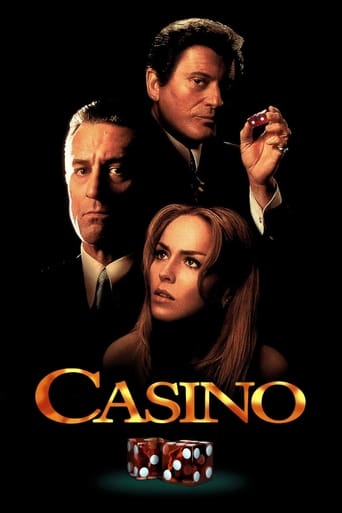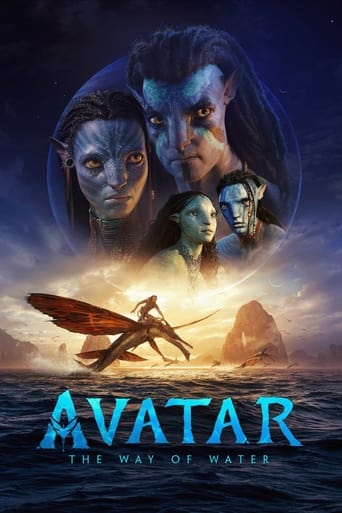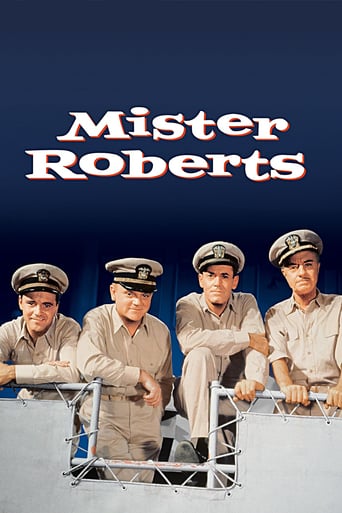


Mister Roberts
Mr. Roberts is as an officer who's yearning for battle but is stuck in the backwaters of World War II on a non-commissioned Navy ship run by the bullying Captain Morton.
-
- Cast:
- Henry Fonda , James Cagney , William Powell , Jack Lemmon , Betsy Palmer , Ward Bond , Philip Carey


Similar titles
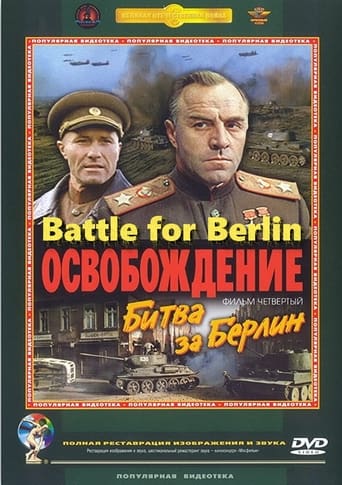
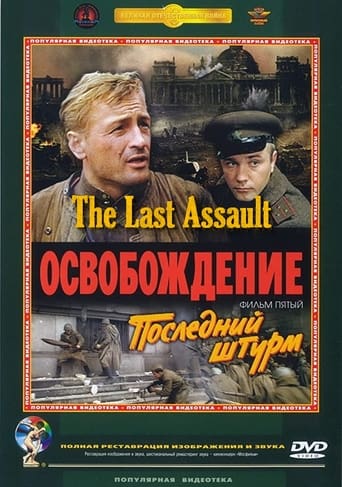
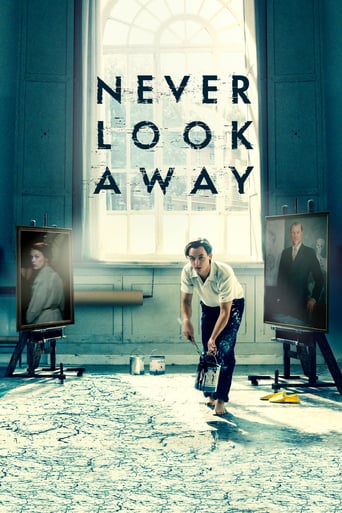
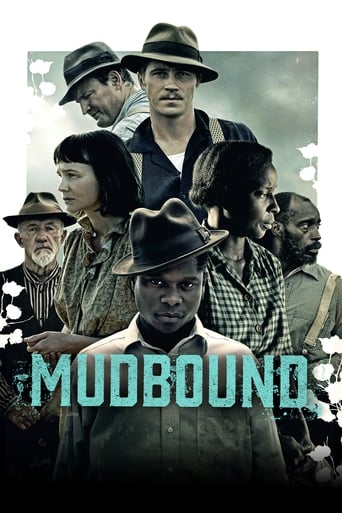
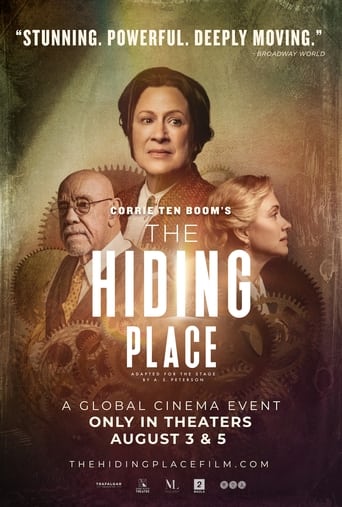
Reviews
You won't be disappointed!
So much average
As Good As It Gets
Like the great film, it's made with a great deal of visible affection both in front of and behind the camera.
Fonda, Cagney, Powell, Lemon. What more could you ask for? Being a huge fan of all four actors, for me personally Mister Roberts may be the greatest accumulation of actors ever; thus I will try my best to contain my inner fan boy. Not only do all four play interesting characters but they all share such interesting relationships between each other. Fonda and Cagney share a Bugs Bunny/ Yosemite Sam like dynamic with Cagney being a frustrated old captain (possibly with a Napoleon complex) in a position of power but with no control over the taller Fonda stepping over everything he does.Jack Lemon's Ensign Pulver on the other hand hates the Captain but out of total shock the captain likes the Ensign. I find this dynamic particular funny as I can relate to that situation of being admired by someone you dislike. However I also relate to the character of Mister Roberts himself in his predicament of being stuck in a rut of which he is desperate to escape from; wanting to leave the navy cargo boat and be right in the action of the Second World War. The entire film effortlessly combines tragedy and comedy with no better example of this being the final scene itself in which the film transitions from the tragedy upon the characters discovering that Mr Roberts has been killed in action to one more final pay off from a recurring gag; one of my favourite movie endings ever. The claustrophobic intimacy of the ship as well as the simply superb dialogue and performances makes the dialogue heavy scenes so engaging. Even with two directors on the project which could have spelled disaster the film manages to come out perfectly fine rather than ending up like a frankensteinian stitch up. The other scene which always stuck out to me was at the beginning of the film when the men are attempting to get a glimpse of women in a shower and going crazy as hell over it. Would men have the same reaction today because of the internet? Was the prospect of seeing a naked woman more thrilling back then?Mister Roberts would be William Powell's final film although one of Jack Lemon's first, so I see the film as a passing of the torch between two generations of comedic actors. Originally Powell retired after appearing in How to Marry a Millionaire but decided to appear in Mister Roberts after reading the script. A much, much better choice of final film in which he shows that even in this stage of his career the man was still a master of words.
The action takes place in 1945, in the "waning days" of World War II. The "Mister Roberts" of the title is Lieutenant Douglas Roberts, cargo officer aboard the United States Navy cargo ship "Reluctant". The ship's work of keeping the Navy supplied is vital to the war effort and Roberts performs his duties conscientiously and well, but he is dissatisfied with life. This is partly due to the fact that he longs to see combat action, which he regards as a more exciting and honourable, if more dangerous, form of service, and the "Reluctant's" work keeps her well away from the actual fighting. It is also, however, partly due to a personality clash between Roberts and the ship's captain, Lieutenant Commander Morton.Roberts is not the only person with whom Morton clashes. Indeed, he seems to have a personality clash not only with Roberts but with the whole of his crew (and probably with most of the human race).He is an unpopular martinet, obsessed with maintaining strict discipline and imposing harsh punishments for minor infractions of the rules. He is also obsessed with trying to promote his own career by sucking up to the top brass; a palm tree presented to him by an Admiral as a reward for his crew's performance plays an important role in the plot. Roberts has made several requests for a transfer to another ship but all have been rejected after Morton refused to endorse them, not because he is desperate to keep Roberts as part of his crew but because he is anxious to do a bad turn to a man he dislikes. Much of Morton's dislike of Roberts is rooted in inverted snobbery; he is of working-class origin, and at one time worked as a waiter, and resents the educated middle classes, to which Roberts belongs, for the condescending way in which they treated him. In some ways, Morton reminded me of Humphrey Bogart's Captain Queeg in "The Caine Mutiny", another film from the mid fifties about a tyrannical wartime naval captain. The main difference is that "The Caine Mutiny" is a serious drama whereas "Mister Roberts" is, generally, a comedy. For most of its length the film is played for laughs with Morton as a figure of fun; the crew flirt with pretty nurses, run riot during a long- delayed shore leave on a Pacific island and spend most of their time trying to do as little work as possible and to get around their hated captain's regulations. One officer, Ensign Pulver, spends most of his time idling in his bunk. Only towards the end does the tone of the film become more serious. Henry Fonda, as Roberts, plays his role competently enough, but I still felt he was miscast. In 1955 he would have been 50 years old, too old for a junior officer, and I felt that the role should have gone to a significantly younger man. The studio (Warner Bros.) apparently would have preferred either William Holden (13 years younger) or Marlon Brando (19 years younger) but were overruled by director John Ford who insisted on Fonda. In the event this proved to be an error on Ford's part as he and Fonda repeatedly clashed on set, even though they had previously worked together on "Fort Apache". Ford also clashed with another of the film's stars, James Cagney. This was to be one of the reasons (health problems were another) why Ford was replaced as director midway through filming by Mervyn LeRoy. (Both men were credited). Jack Lemmon rather surprisingly received the 1955 Academy Award for Best Supporting Actor for his role as Pulver. I say "surprisingly" because, although there is nothing particularly bad about his performance, he was up against a much better one from Sal Mineo in "Rebel without a Cause". William Powell (acting in his last film, although he was to live for another three decades) is good as the kindly ship's doctor, but the best performance comes from Cagney as the bullying Morton, in my view better here than in "Love Me or Leave Me" for which he received an Oscar nomination in the same year. The film itself was nominated for "Best Picture", a nomination which looks odd when one considers that movies as great as "Rebel without a Cause", "East of Eden" and "Bad Day at Black Rock" were overlooked. This strikes me as an example of two potentially good films being incongruously joined together to produce, if not a bad one, then a mediocre one. It would have been quite possible to produce a good comedy about a wartime naval crew's battles against an unpopular captain. It would have been equally possible to produce a serious wartime drama about a naval officer who yearns for a transfer to an active combat role, despite the increased risk to his personal safety. Trying to combine both stories in a single tragi-comedy evidently proved more difficult. Comic relief can be an effective device in a predominantly serious play or film. The trouble with "Mister Roberts" is that it tries to do the opposite, introducing tragic relief into an essentially comic film, and the result is that the final scenes strike a jarring note indeed. 6/10
William Powell is, as always, wonderful. His acting is beautifully understated. I wish you could say the same for Henry Fonda and Jack Lemmon. Such overacting and theatrics. And they don't seem to know how to talk in a normal tone of voice. Perhaps they could have shut up for a few moments and listened to how William Powell does it. There are so many boo-boos and ridiculous set-ups in this film. For example, everyone gathers around to hear Mr. Roberts' letter to Pulver. But they continue to crouch around when he moves on to read a letter from his friend. Why would they care? Well, because the letter from the friend contains big dramatic news, so they have to be all clustered around so we can see them look shocked and grieved. So phony.And Navy enlisted personnel who break into the colonial governor's mansion and damage property would not just be escorted back to their ship. That's just silly.
I must confess that, as a John Ford fan, I spent the first hour of this film thinking to myself, "what a waste of an hour". The plot seemed to go nowhere. It seemed as if Ford had no greater plan than to put all of his favorite actors onto a boat, and see if anything John Ford-like happens. To be honest, for the first hour, nothing much does. The show just drags on. But the second half makes up for the first. Fonda does some his finest acting, his soft mid-western drawl perfectly suited to a man who spends most of the film depressed and uncertain of his present and his future. And he plays some lovely and touching scenes with the crew of the ship towards the end. Henry Fonda will always be to me the great American actor.William Powell is gently awesome as well, playing a wonderfully jaded yet genial doctor, with his perfect enunciation of every line and elegant manners demonstrating the skills of this consummate actor. Yet he and Fonda in their many scenes together complement each other beautifully, rather that fight for attention. Very lovely stuff.James Cagney is hilarious as a fussy, angry and child-like captain, whose anger is never really investigated. An enigma of a character.And now, some short thoughts: (1) There are 2 fascinating reprisals of moments from earlier John Ford films in Mr. Roberts: (a) Early in the film, when the nurses come on board, Ward Bond, walking behind the lined up nurses, issues forth a loud horse-like whinny; then nothing happens. This is exactly what he did in the monumental "My Darling Clementine" (1946); there, Bond whinnies as he is crossing paths with Linda Darnell, to which she responds by dumping a pitcher of milk on his head. (b) At the end of the film, at an emotional climax, the camera zooms in on a sitting Jack Lemmon; while zooming, the camera briefly goes slightly and softly out of focus before clearing up again, as it settles onto Lemmon's face. This is wonderfully reminiscent of the amazing moment in Stagecoach (1939) when the camera introduces John Wayne's character Johnny Ringo, there zooming in quickly as Wayne holds a rifle, going out of focus for a fraction of a section before clearing up again. In Mr. Roberts, the effect is also effective.(2) As Dolan, John Ford Troupe actor Ken Curtis does a hilarious and quite good James Cagney impersonation at one point, including a full elimination of the letter "r" from all words. (3) I never want to see Henry Fonda laugh uncontrollably ever again. It is very disturbing. (4) John Wayne's son Patrick gets his 2nd movie credit here. This film is not the classic that many people seem to think it is, but for fans of Henry Fonda and John Ford, ultimately worth it for the touching and emotional second half.



